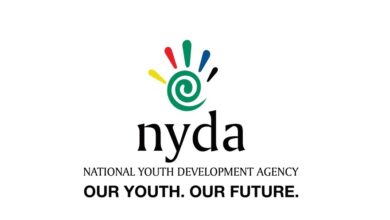10 Types Of Personalities People Really Hate

while some people are able to make themselves naturally pleasant, others are rather repulsive in the eyes of others – and most of the time, it all comes down to their personality type. Everybody loves optimists and nobody dislikes narcissists, and if you are curious to find out more about the personality types people dislike the most, then here are some of them:
1. The ENFP Personality Type
The ENFP Personality is very common amongst extremely successful people – and this is precisely why so many people dislike it. It often happens that those who do not manage to overcome their condition or to make the best of their potential try to bring down those who have managed to make a name and a reputation for themselves. People with ENFP personality (which stands for extroversion, intuition, feeling and perception) are driven, enthusiastic and extremely creative – and they account for less than 5% of the population.
2. The Antisocial Personality Disorder
This type of personality is actually classified as a disorder – the ASPD, or the antisocial personality disorder, is one of the most dreaded ones. Having said that, antisocial people are likely to act recklessly, they tend to behave in ways that others may find bothersome, uncomfortable or even offensive in certain situations, and they generally have a hard time socializing with people. They tend to get bored very quickly and they feel comfortable alone – as a matter of fact, being on their own is their comfort zone, this is why being around other people (and especially in a large crowd) may stress or irritate them.
This is yet another type of personality disorder that does not appeal to many people – those with histrionic personality disorder tend to always be in the spotlight, and they feel rather uncomfortable when they are not the center of attention. Moreover, those who suffer from HPD also tend to entertain those around them, and they always strive to be the soul of the party. Easily influenced by those around them, histrionic people always rely on the approval and validation of those around them, and they often tend to be either overly emotional or very dramatic – this is one of the many reasons why the histrionic personality is one of the most hated ones.
4. Temperamental People
People who have a temperamental personality are generally very hard to manage, as their mood tends to change dramatically, all of a sudden. Temperamental people are sometimes very irrational and they allow themselves to be driven by impulses, instead of taking their time to think things through rationally.
5. Narcissistic People
Another personality disorder is the NPD, or the narcissistic personality disorder. Narcissists are rather common these days – they think very highly of themselves, in spite of having a very low self-esteem and self-confidence, and they constantly rely on the comments/appreciation of their friends, family and acquaintances to validate their worth and to recognize their needs. They also feel very resentful when it comes to other people’s success, and they feel like they are undervalued/underappreciated by those around them. Selfish and self-centered, narcissists often think they are a “rare breed” and they strive to stand out from the crowd at all costs.
6. Obsessive-Compulsive Personality Disorder
OCPD, or obsessive-compulsive personality disorder, is an underdiagnosed condition that affects a great segment of the population – as a matter of fact, 1% of the people are believed to suffer from OCPD. The tell-tale signs of obsessive-compulsive personality disorder are rather obvious, as these people have a constant desire of keeping everything in perfect order, to be in control of everything and to expect something disastrous to happen if things are not in perfect order. People with OCPD always worry too much and they set unrealistically high standards, not just for themselves but also for those around them – nonetheless, it is essential to make the difference between the OPCD, which is a type of personality, and OCD (obsessive-compulsive disorder), as the latter refers to a form of behavior, as opposed to a type of personality.
7. Anxious People
The full name for this is AVD, or avoidant personality disorder – these people tend to avoid work-related activities and to live rather isolated or secluded lives. People with avoidant personality disorder are constantly scared about being rejected, they are hypersensitive to criticism and disapproval and they always worry too much, especially about things that most people would consider normal. Lonely and reluctant to try new activities or to gain new sets of skills, people with avoidant personality disorder are constantly afraid of embarrassing themselves or being shamed by others, this is why they would rather spend time alone than with other people. The deep and intense fear of rejection that people with anxious/avoidant personality disorder feel makes them avoid friendships and intimate relationships, and this certainly takes its toll on their connections with everybody.
8. Humorless People
Nobody likes people who lack humor and who take life too seriously. In some cases, they may come off as very smart and utterly professional, which certainly benefits them work-wise. However, people tend to dislike those who never laugh, who are always uptight and who never make jokes – humor always makes people better!
9. Dependent People
Lastly, another type of personality that does not appeal to the masses is the dependent personality disorder. People who always rely on somebody else for aid and support are often regarded as very weak, as they act like they are nothing but a “body extension” of somebody else. That somebody serves as their pillar, their “savior” that always has a solution for everything. These people are needy and clingy – not just in their intimate relationships, but also in their personal life, as they constantly turn their faces to others for help. We come into this world alone, and we will leave it the exact same way – it is essential to be independent and self-sufficient to a certain extent. Dependent people who always need somebody by their side are very off-putting, from every point of view.
10. Condescending People
(Meaning = showing or implying a usually patronizing descent from dignity or superiority). Many people with Personality Disorders suffer from low self-esteem and look for ways to feel better. One way some of them try to do that is by putting others down using Belittling, Condescending and Patronizing speech.




